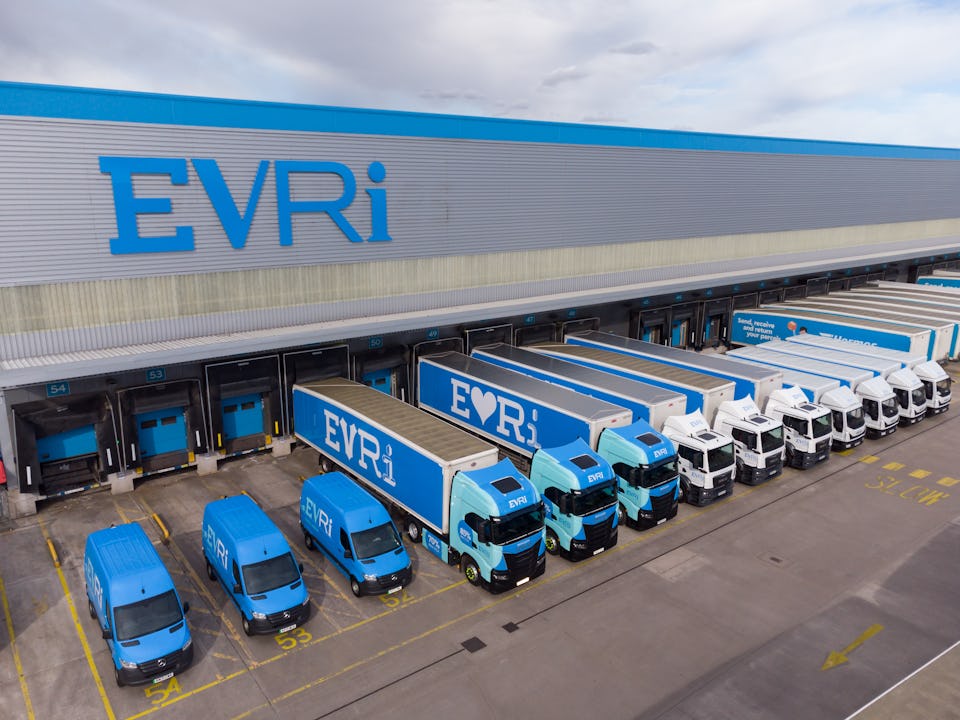Evri orders first electric HGV and strengthens its fleet ahead of its peak period.

19th October 2023: Evri, the UK’s biggest dedicated parcel delivery company, has invested more than £3 million in its fleet as it prepares for its busiest ever peak period, delivering up to 3.5 million parcels on its busiest days.
Evri has placed an order for its first-ever electric HGV as it moves towards its goal of reaching net-zero by 2035. This follows the announcement last month that Evri was trialling two electric HGVs, which continues as a separate trial. Evri, keen to progress and grow its sustainable fleet, is delighted to have placed an order of a DAF XB eHGV, which has a range of up to 350 zero-emission kilometres, can go from a 20% to 80% charge in under 70 minutes depending on the specification and will be in operation before Christmas. As a result, some parcels could see a journey only on alternative fuel vehicles.
The company is also strengthening its fleet in other areas, including adding 12 more bio-CNG (compress natural gas) Iveco S-Way tractor units to its core fleet, bringing the total to 202 bio-CNG vehicles – these are already in operation and reduce emissions by 80%. An additional 20 bio-CNG tractor units have been added to the fleet on a temporary basis, to support with increased volume in Evri’s busiest months.
Evri has this month taken delivery of 43 long-body rigids which are 10m long rather than 8.5m, increasing the capacity by 25% from 16 to 20 pallets. As a result, these vehicles, which will be in operation by the end of October will significantly reduce the number of vehicles and miles on the road.
As the company substantially invests to grow its sustainable fleet and move towards net-zero by 2035, it continues to introduce new initiatives including a move to ensure all new company cars being issued are low carbon – currently more than 44% of Evri’s company cars are low carbon including electric, hybrid and plug in cars. All company cars will be low carbon by 2027. Next year, the company will continue to explore options for improving its charging infrastructure to allow the growth of its existing low carbon fleet, which consists of 44 vehicles running on HVO (hydrotreated vegetable oil), 167 electric vans and growing fleet of e-cargo bikes.
We’re excited get our hands on our first permanent electric HGV. I’m really proud of the investment our business continues to make in more sustainable vehicles, and I can’t wait to see what this vehicle can do in a highly demanding environment. We’ll be closely monitoring its performance so we can explore which other routes might be suitable for this kind of vehicle. Many of our routes require an extensive range to maintain efficiency of the parcel journey, so it’s the toughest area to decarbonise. It’s been great to work with our suppliers Adams Morey Ltd to supply the trucks and our long-term supplier GK Signs for applying the fantastic livery.
David Landy, Head of Fleetat Evri